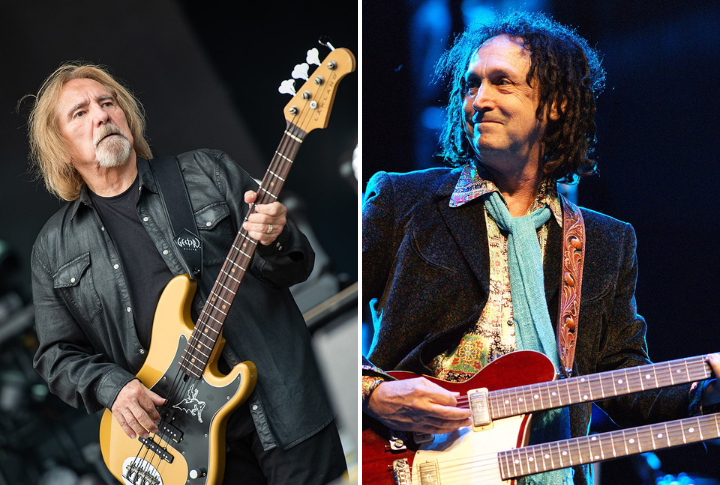
In a band’s success, certain members often stand in the shadows cast by the spotlight. Yet, their contributions are the threads that stitch together the magic of unforgettable melodies and iconic performances. This list celebrates those unsung heroes—the talented individuals whose names might not always be in bold on the posters but whose influence resonates deeply in the music we love.
Roy Bittan (E Street Band)

Roy J. Bittan, affectionately known as “The Professor,” has been a cornerstone of the E Street Band since joining in 1974. In live performances, Bittan is a silent yet powerful presence. His fingers dance across the keys with precision and passion, captivating audiences worldwide. Bittan’s contributions can be heard on some of the most celebrated albums in rock history, like “Jungleland.”
Geezer Butler (Black Sabbath)
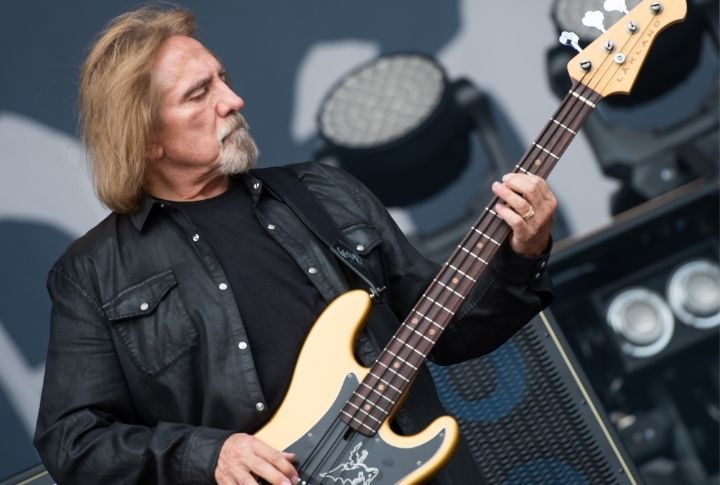
Terence Michael Joseph Butler, better known as Geezer Butler, was a legendary bassist and primary lyricist for the pioneering heavy metal band Black Sabbath. Often overshadowed by frontman Ozzy Osbourne and guitarist Tony Iommi, Butler’s innovative bass playing helped define Black Sabbath’s heavy, doom-laden sound. His intricate riffs and powerful lines on tracks like “N.I.B.” set a new standard for rock bassists.
Mike Campbell (Tom Petty and the Heartbreakers)
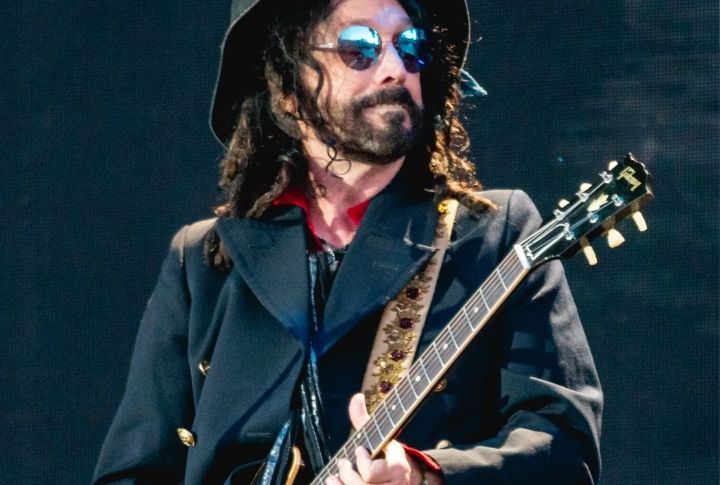
Known for his impeccable guitar skills and songwriting prowess, Michael Wayne Campbell has been a key member of Tom Petty and the Heartbreakers. He co-wrote many of the band’s iconic hits, including “Refugee,” “Here Comes My Girl,” “You Got Lucky,” and “Runnin’ Down a Dream.”
John Deacon(Queen)

Despite his retirement, John Deacon’s legacy as Queen’s bass guitarist lives on. Known for his understated stage presence, he contributed to the band’s unforgettable sound and financial success. His songwriting brought hits like “You’re My Best Friend” and “I Want to Break Free.” A multi-instrumentalist, Deacon enriched Queen’s studio recordings with guitar, keyboards, and piano.
John Entwistle (The Who)
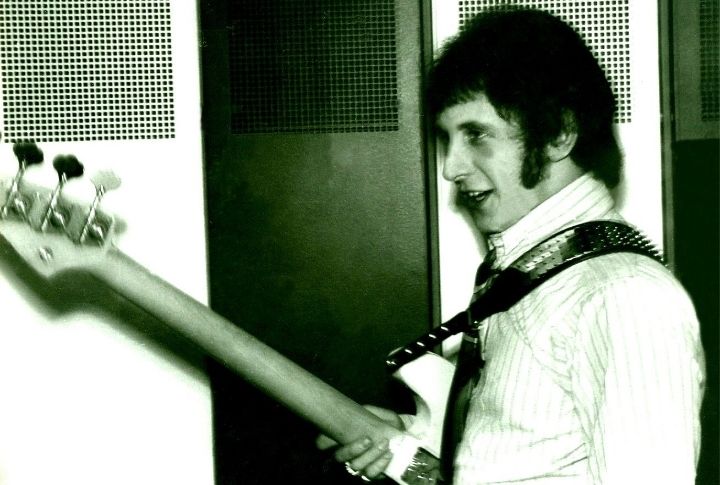
Nicknamed “The Ox” and “Thunderfingers,” Entwistle’s bass playing was a thunderous backbone of The Who’s sound. His formal musical training set him apart, allowing him to weave intricate bass lines that defined the band’s iconic sound. His role in The Who’s dynamic was pivotal, earning him acceptance into the Rock and Roll Hall of Fame in 1990 alongside his bandmates.
Ace Frehley (Kiss)
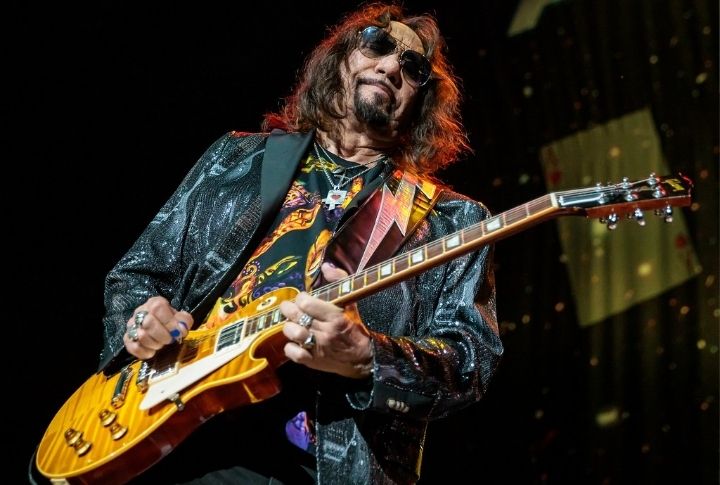
In the electrifying world of Kiss, where spectacle and imagery reign supreme, Ace Frehley carved out his own stellar legacy. While Gene Simmons and Paul Stanley dazzled up front, and Peter Criss found his spotlight with the iconic ballad “Beth,” Frehley emerged as the unsung virtuoso of the classic Kiss lineup.
Jonny Greenwood (Radiohead)

John Greenwood, an English guitarist and composer, plays lead guitar and keyboards for Radiohead. He’s known for his film scores and alternative rock guitar skills. Despite his talent, Greenwood prefers staying out of the limelight in the hugely successful band. He excels as a creative composer and arranger alongside his strong guitar work.
George Harrison (The Beatles)
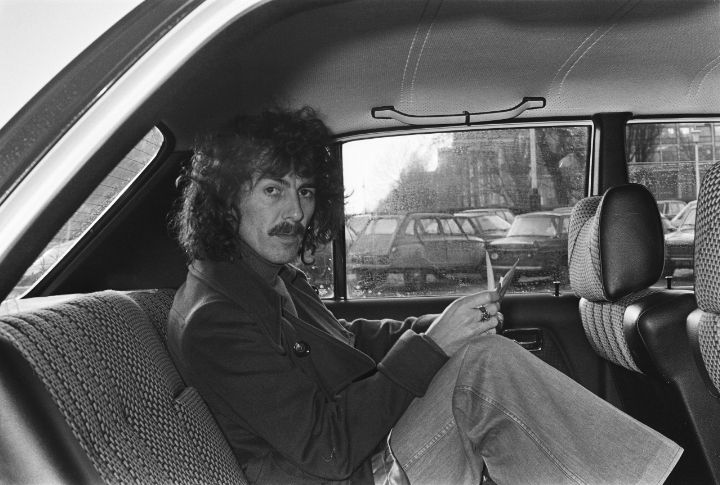
The late George Harrison was an English musician, singer, and songwriter, born on February 25, 1943, and died in 2001. As the lead guitarist of The Beatles, he expanded the band’s sound with Indian influences and spiritual themes. Known as “the quiet Beatle,” Harrison’s musical prowess and virtuosity on guitar remain legendary.
Topper Headon (The Clash)

Fans argue that the Clash declined after drummer Headon left in 1982 due to heroin addiction. His contributions were pivotal, notably on the acclaimed album Sandinista! (1980) and Combat Rock (1982). Moreover, he showcased his piano skills on the hit “Rock the Casbah.”
Alex Lifeson (Rush)
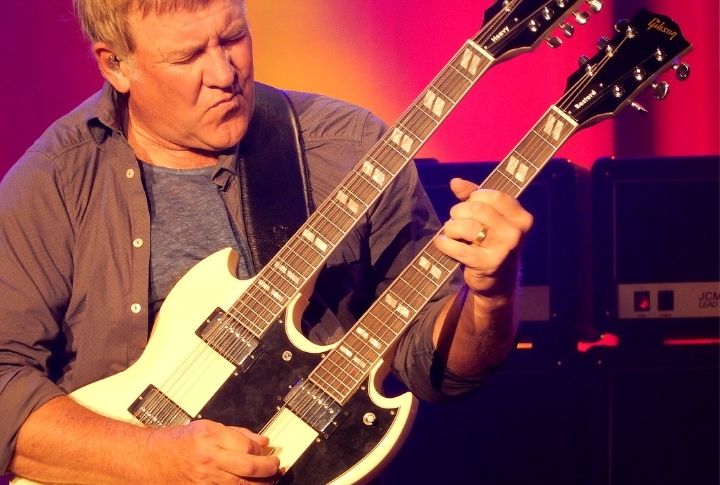
In Rush, Alex Lifeson often stood in the shadows of Geddy Lee and the late Neil Peart, renowned for his drumming and songwriting. Despite this, Lifeson’s significant contributions shaped the band’s sound. Apart from Rush, he explored solo projects, including the album “Victor.”
Mick Mars (Mötley Crüe)
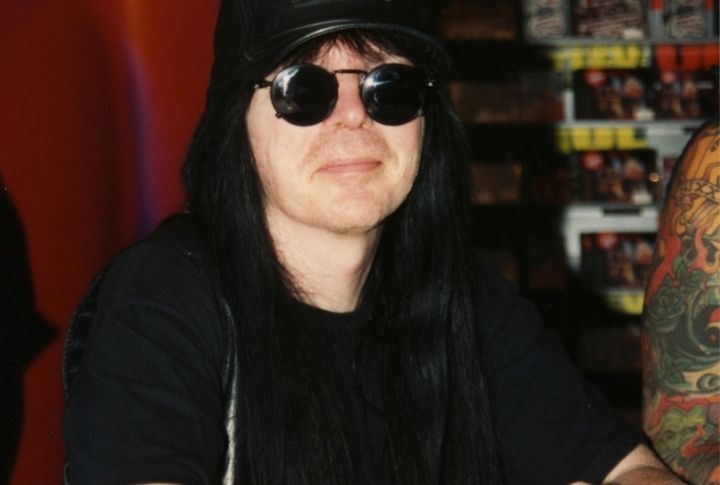
Formed in 1981 in Hollywood, California, Mötley Crüe features bassist Nikki Sixx, drummer Tommy Lee, guitarist Mick Mars, and vocalist Vince Neil. Among the band’s flamboyance and antics, Mars, the oldest and quietest member, made his mark with underappreciated guitar work on hits such as “Looks That Kill” and “Girls, Girls, Girls.”
Billy Powell (Lynyrd Skynyrd)
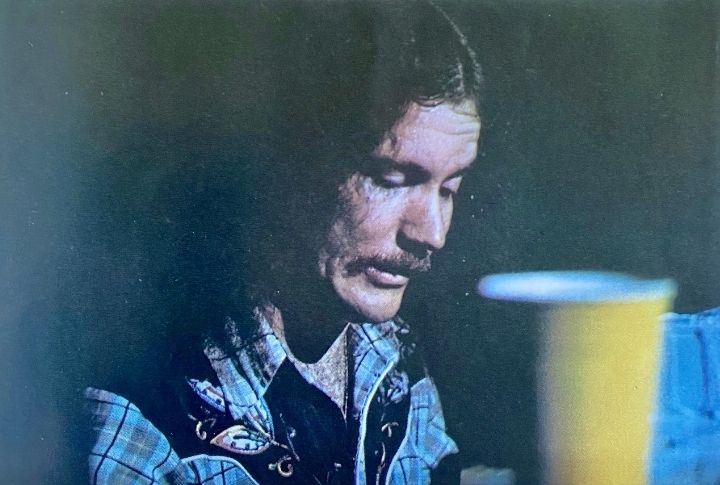
In the original lineup and early days of Lynyrd Skynyrd, Billy Powell, initially a roadie, emerged as the most underrated talent. His contribution as pianist/keyboardist was pivotal, shining particularly on Skynyrd classics such as “Free Bird” and the beautifully arranged “Tuesday’s Gone.”
Gary Richrath (REO Speedwagon)
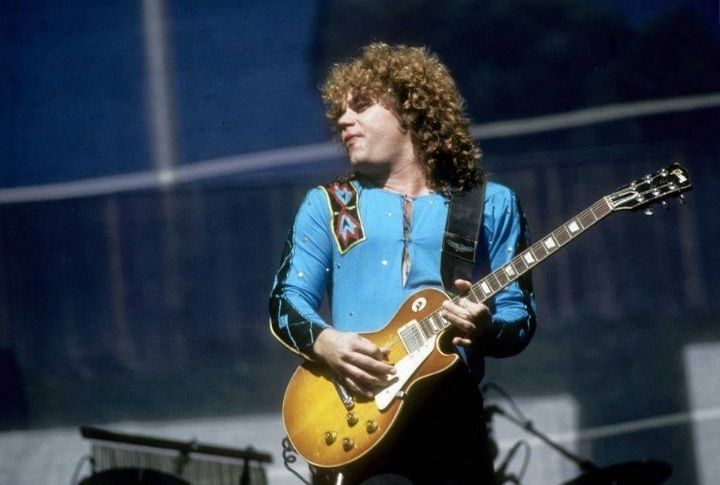
Gary was the driving force behind REO’s rock sound in the 1970s before the band transitioned to pop. His electrifying guitar playing on classics like “Ridin’ the Storm Out” and “Golden Country” defined his legacy. Richrath parted ways with the band in the late 1980s over musical disagreements with Kevin Cronin.
Gina Schock (The Go-Go’s)

Best known as the drummer of The Go-Go’s, Gina Schock was inducted into the Rock and Roll Hall of Fame in October 2021 with the band. Joining in the late 1970s, Schock transformed The Go-Go’s from a middling punk group into a polished, radio-friendly sensation through her determination and talent.
Chad Smith (Red Hot Chili Peppers
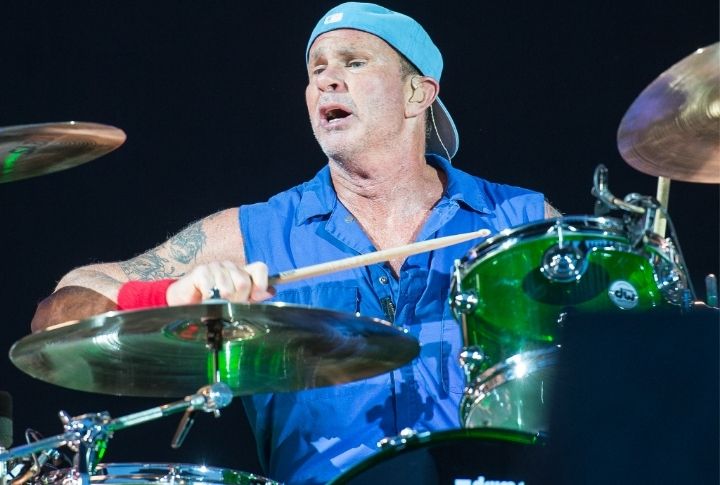
In the pulse-pounding world of the Red Hot Chili Peppers, Chad Smith stands tall behind the drums, a rhythmic powerhouse who’s been driving their beats since 1988. While he may not always steal the spotlight like Flea’s electrifying bass or Anthony Kiedis’ charismatic vocals, Smith’s drumming prowess speaks volumes. Just listen to the thunderous groove of “Higher Ground” or the infectious rhythm of “Knock Me Down” to witness his contribution to the band’s unmistakable sound.


Comments
Loading…